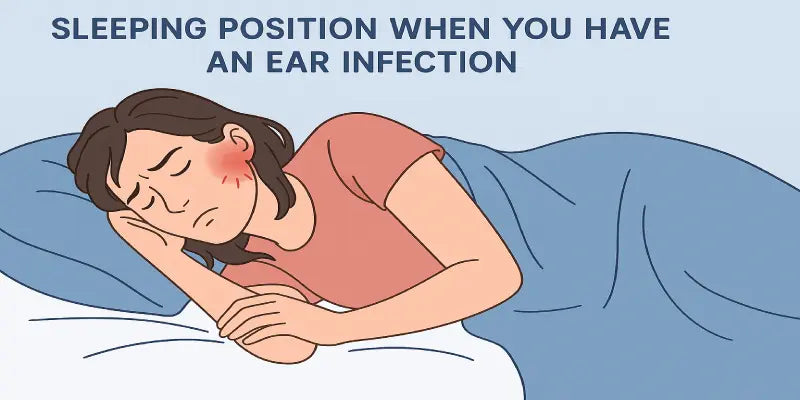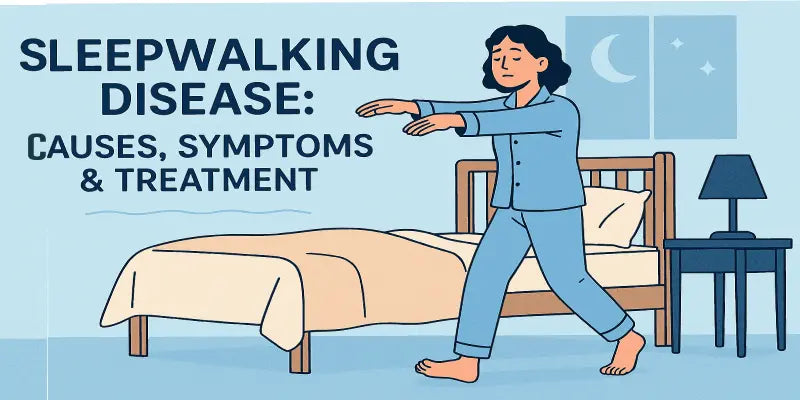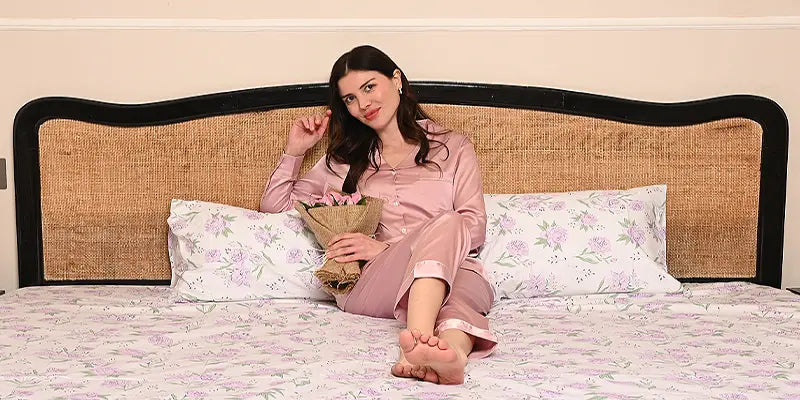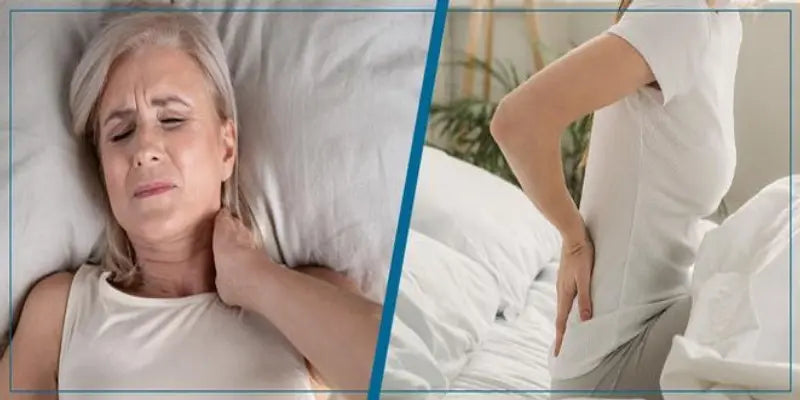
All The Pain Relief Pillows You Need to Know About!
Pain impairs your productivity and damages your quality of life. Both short term and chronic pain cause a huge productivity loss by lowering your ability to perform well at your school, university, or work.
Special pillows made specifically for a particular type of pain can help you relieve symptoms and get back on track.
Types of Pain Caused by Posture Problems
Several joints can develop stiffness and pain because of posture problems. In this article, you’ll learn more about such pains and pain relief pillows for each.
Neck Pain

Neck pain can be acute and at a single point or radiate down to other parts of the body.
Around two-thirds of people suffer from neck pain at some stage of their life. Chronic neck pain impacts around 10% of people.
Poor sleeping and sitting posture is often associated with neck pain and stiffness.
Here are the most prominent causes of neck pain:
- Muscle strain: often caused by bad sitting or sleeping posture, it leads to soreness and aching pain in the affected area.
- Injury: because of its function of supporting the head, the neck is especially vulnerable to injuries in particular events: accidents, weight lifting, diving, sports, etc.
- Cervical radiculopathy: irritation or compression of a nerve root from the spinal cord leads to this condition. The pain may radiate down the neck and into the shoulders and shoulder blades.
- Spinal stenosis: because of narrowing of spinal canals in this condition, the nerve roots get compressed. In rare cases, the pain may radiate down the whole body.
You can rely on a neck pain pillow to find relief from the pain.
Read About: Neck Pain Relief Pillows
Lower Back Pain
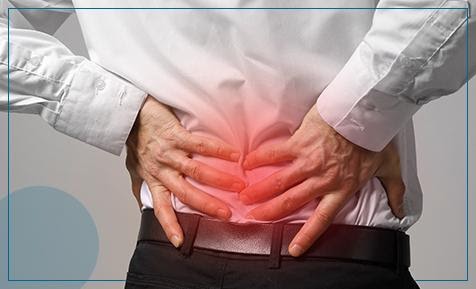
In the United States, more than 85 percent of visits to the doctor for low back pain are nonspecific or not related to disease and spinal abnormality.
And even in India, many of us are glued to the chair for prolonged periods of time, staring at a computer screen.
Further, we rarely take note of correct sitting and sleeping posture.
Lower back pain caused by sleeping wrong can take some time to heal.
Generally, two reasons stand out that lead to the development of lower back pain from sleeping wrong:
- Not alleviating the pressure from the lower back
- Using mattresses that are too firm or too soft
If you eliminate these two problems, you’ll be able to relieve pain and prevent it from occurring in the future.
Read About: Lower Back Pain Relief Pillow
Shoulder Pain

Shoulder pain commonly affects side sleepers because when you sleep on your side, the weight of your upper body falls on the shoulder beneath.
The stress experienced by your shoulder may lead to pain - even chronic pain.
Tailbone (Coccyx) Pain

Tailbone pain generally results from prolonged sitting sessions with poor sitting posture.
Apart from posture problems, trauma to or stress on the coccyx can lead to pain. Trauma and stress are often caused by:
- Fall
- Sitting on a hard surface
- Sitting on a narrow surface
In extremely rare cases, degenerative joint changes can be a reason for coccyx pain.
Read About: Coccyx Pain Relief Pillow
Knee Pain

Stiffness and pain in the knee can prevent you from engaging in physical activities. Pain can often cause swelling, which lengthens the healing time.
There are no special pillows to relieve knee pain, but you can simply put a pillow between or under your knees to relieve your symptoms.
Pillow for Pain Relief
For several pain types, experts have designed pillows that promote good posture to provide relief.
Pillow for Neck Pain

Orthopedic cervical pillows are designed to provide better support to your neck and reduce the pressure from your joint.
Upon the removal of additional pressure, your neck muscles heal on their own and the pain often disappears.
How Orthopedic Cervical Pillows Provide Relief from Neck Pain?
The depression in the middle of the pillow is its main feature. You have to rest your head in this space.
So this pillow for neck pain relief can help you not only manage your symptoms but also fix them entirely.
Neck pain pillows use these two factors:
- Better support: This depression in the middle of the pillow leads to a protrusion, which offers better support to your cervical spine.
- Better alignment: Ensures proper alignment of neck with rest of the spine
This pillow for neck pain relief also maintains natural curvature of the cervical spine.
Simply put, these pillows solidify the support for your neck. And even though you may change your sleeping position, this pillow keeps your neck supported so that it gets the time it needs to heal.
If you experience neck pain after sleep, then this pillow will certainly provide relief and improve your quality of life.
Which Orthopedic Cervical Pillow Should I Choose?
Even though cervical pillows come with a variety of fills, you should select the ones with memory foam.
Which Sleeping Positions Does This Pillow Support?
Even though this pillow supports all sleeping positions, we recommend against sleeping on your stomach because stomach sleeping can exacerbate your pain by putting your spine in an unnatural position.
So while you're recovering from your pain, you should sleep on your back or side.
Back sleepers can rest their head in the middle of the pillow, and side sleepers can rest it on one of the two sides without depression.
Later in this article, you’ll find more information about correct sleeping posture to relieve neck, lower back, and shoulder pain.
Buy: Orthopedic Cervical Pillow for Neck and Shoulder Pain
Travel Pillow to Relieve Neck Stiffness

If you travel a lot via cars and/or flights, then you need to sit for a prolonged period of time. This can put a huge amount of strain on your neck.
To reduce neck strain, you can rely on a travel pillow.
Also known as a doughnut or U-shaped pillow, it provides relief to the neck by removing stress and offering support.
Get a travel pillow to reduce the amount of pressure on your neck.
Pillow for Lower Back Pain
The incidence rate of chronic and impairing low back pain has doubled from 1992 to 2006.
According to WHO, 60 to 70 percent of people in industrialized nations will suffer from low back pain during their lifetime.
Lower back pain can result from both bad sitting and bad sleeping posture. While it may take some time to develop, chronic back pain can be very difficult to treat.
So you should take immediate measures, such as ice and cold therapy, to ease inflammation and start healing.
Back Sleepers- Put a Pillow Under Your Knee

Back sleepers should place a cushion or pillow under their knees to put the spine in a more natural position.
By relieving pressure from the lower back, you can give it time to heal properly.
Side Sleepers- Put a Pillow Between Your Knees
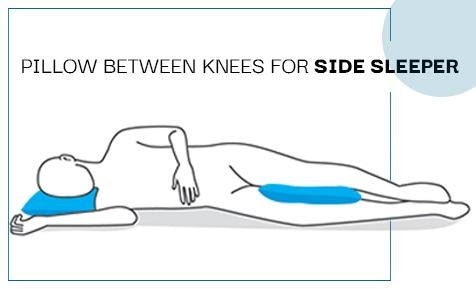
Side sleepers have a tendency to let their upper leg slide down to the mattress.
When your upper leg slides down, it rotates your spine, resulting in lower back pain.
But if you simply put a pillow between your knees, then your upper leg won’t slide down.
Note: Don’t sleep on your stomach, as it puts a lot of stress on the lower back and can even exacerbate your symptoms.
Orthopedic Lumbar Support Pillow for Back Pain Relief

If you sit for prolonged periods of time, then you should get a lumbar support pillow, which:
- Supports your lumbar spine
- Lowers pressure from the lower back and tailbone
- Helps to maintain the natural curvature of spine
Go for the longer pillow to ensure that your mid back is supported along with your lower back.
You can use a lumbar support pillow on your chair or car seat to maintain a better posture and relieve back pain.
Buy: Orthopedic Lumbar Support Pillow
Change Mattress

A good mattress shouldn’t let your hips sink in too much, nor should it be so firm that it causes discomfort to the joint.
So you need to find a mattress that provides the perfect balance of softness and firmness.
You may have to try multiple options before you stick to one.
Otherwise, you can try a memory foam mattress, as the material is firm and capable of molding to the shape of your body. But memory foam can get a little hot, so buy one that incorporates cooling gel.
Pillow for Coccyx Pain

Coccyx pillows are designed to provide relief from tailbone and sciatica pain.
You can place the pillow on your seat to relieve some of the pressure that your tailbone experiences from prolonged sitting. And it even improves your posture.
And apart from a coccyx pillow, you may also use a doughnut pillow for tailbone pain relief.
Buy: Coccyx Pillow for Sciatica and Tailbone Pain
Doughnut Pillow

Doughnut pillows support the tailbone and promote good posture. The base is generally non-ship to prevent the pillow from slipping while you’re sitting.
These pillows can reduce pressure from coccyx, lower back, pelvis, perineal, and anal region.
They’re popularly used for the following types of pain:
- Lower back pain
- Hemorrhoids
- Pressure ulcers
- Pregnancy
- Childbirth
- Prostatitis
Doughnut vs Coccyx Pillow
I recommend that you go with a coccyx pillow, as you can use it as a good seat cushion that helps relieve pressure from lower back and to improve your sitting posture.
Read More About: Correct Sitting Posture
Sleep Apnea Pillow for Symptom Relief
Sleep apnea causes breathing to stop temporarily while a person is asleep. It’s classified as:
- Obstructive sleep apnea: the upper airway gets blocked, leading to loud snoring and difficulty in breathing.
- Central sleep apnea: the CNS fails to send correct responses to muscles, leading to temporary cessation of breathing while asleep.
First of all, ensure that you don’t sleep on your back. Sleeping on the back can exacerbate the symptoms of OSA.
So sleep on either your stomach or your side.
Special pillows are designed to provide relief from obstructive sleep apnea. These pillows can be classified as:
- Foam pillows: contour pillows can be effective for pressure relief and better head and neck alignment.
- CPAP (continuous positive airway pressure) pillows: CPAP pillows are especially designed to enable a person with OSA to sleep with his or her CPAP mask on. Some pillows provide space in which you can stuff the CPAP machine.
- Wedge pillows: these triangular pillows elevate your head and body in order to prevent your tongue from slipping back into your throat.
GERD Symptoms Relief Pillow

Wedge pillows can also be used to relieve symptoms of acid reflux and GERD (Gastroesophageal reflux disease).
GERD causes acid reflux or heartburn. When the acid from your stomach moves into the esophagus, it leads to acid reflux and heartburn.
When this happens more than twice in a week, you’re diagnosed with GERD.
→ By elevating your body to minimize the amount of acid entering your esophagus, wedge pillows can provide relief from symptoms of GERD.
Night Sweat Relief Pillow

You may suffer from night sweats if, despite the room being cool, your body is often drenched in sweat when you wake up.
Although sweating is a natural phenomenon through which our body cools itself down, excessive and unexplained sweating at night can be a result of a medical condition.
Causes of night sweats include:
- Antidepressants
- Steroids
- Hormone therapies
- Diabetes medications
- Infections
- Osteomyelitis
- HIV
Whenever you experience excessive sweating after starting a new medication, you should consult your doctor.
To find respite from night sweats, you can rely on a cooling gel pillow.
Cooling gel prevents your pillow from absorbing body heat - traditional pillows absorb body heat and pass it back to us.
These pillows generally come with a memory foam filling: either solid or shredded.
Buy: Cooling Pillow with Memory Foam
Pillow for Pregnancy

Body pillows are quite popular among pregnant women. Also known as pregnancy pillows, they provide comfort even when your curves change.
They can:
- Make sleeping more comfortable
- Minimize sleep interruption
In the later stages of pregnancy, these pillows become very useful, as they make it easier to find a comfortable sleeping position.
And they also relieve some pain and discomfort experienced during pregnancy.
Pregnant women may also use a doughnut pillow for specific purposes.
Fix Your Posture!
Although you can rely on temporary measures to relieve pain, you need to fix your posture for a long-term fix.
Correct Sleeping Posture
Correct sleeping posture depends on your sleeping position. Let’s take a look.
Table: pillow loft and firmness recommendation on the basis of sleeping position.
|
Sleeping position |
Pillow loft |
Pillow firmness |
|
Back sleeping |
4-6 inches |
medium-firm |
|
Side sleeping |
5-7 inches |
firm |
|
Stomach sleeping |
3 inches or less |
soft |
Back Sleeping

You’re a back sleeper if you rest your back on the mattress.
It’s considered the best position to sleep unless you suffer from obstructive sleep apnea.
Benefits of back sleeping:
- Reduces pressure from the lumbar spine
- Ensures good support to the cervical spine
- Better spinal alignment
- Prevents headaches caused by poor head and neck alignment
Resting your face on the pillow is linked to an acceleration in wrinkle formation. So back sleeping can help you to avoid such a predicament.
Also, acne causing bacteria grows on the surface of your pillow. Because you won’t rest your head on the pillow, you can minimize the risk of an acne outbreak.
Tips for back sleepers:
- Ensure that the neck is supported when you lie down on the bed.
- Place a pillow below your knees to return the lumbar spine into a more neutral position.
- Pillow recommendation
- Firmness: medium-firm
- Loft: 4-6 inches
Side Sleeping

Side sleeping is correlated with several health benefits such as:
- Reduced snoring
- Reduced pain from chronic pain conditions, including fibromyalgia
- Reduced risk of obstructive sleep apnea
However, if you don’t follow the correct posture, you can increase the strain on your joints.
Tips for side sleepers:
- Use a mattress that is medium-firm to reduce strain from joints
- Place a pillow between knees to prevent the upper leg from sliding down.
- Don’t rest your head on your palm if you have acne.
- Pillow recommendation:
- Firmness: firm
- Loft: 5-7 inches
Side sleeping may cause shoulder and lower back pain if you don’t follow the posture correctly.
Prevent shoulder pain
When sleeping on your side, most of your upper body weight tends to fall on the shoulder towards the mattress.
So use a pillow with a greater loft to prevent shoulder pain.
Prevent lower back pain
If your upper leg slides down onto the mattress, your lumbar spine rotates into an unnatural position. Upon this rotation, the lumbar spine experiences stress, which may lead to pain, and even disc herniation.
To prevent lower back pain or to find relief, place a pillow between your knees when sleeping on your side.
Stomach Sleeping

Stomach sleeping is a bad habit. It puts a lot of pressure on your cervical and lumbar spine - pressure that can later lead to pain.
Meanwhile, you can follow the tips provided below to relieve lower back pain:
- Pillow recommendation:
- Loft: 3 inches or less (as flat as possible)
- Firmness: soft
- Place a pillow beneath your lower abdomen to bring your lower back into a more neutral position.
Adjustable pillows to prevent neck pain
Adjustable pillows contain shredded foam. They’re usually made of latex, cotton, or memory foam.
The idea is simple - remove or insert memory foam to decrease or increase the loft and firmness of the pillow.
Like many others, you may also change sleeping positions while you sleep. So you can use an adjustable pillow and customize it to suit your preferences.
Correct Sitting Posture

Follow the tips provided below to correct your sitting posture and reduce pain:
- Ensure that your back is properly supported
- Place a rolled towel if the chair lacks good lumbar support
- Your legs should be slightly downwards or parallel to the ground
- Distribute body weight evenly by placing your feet firmly on the ground
- Keep screen at eye level
- Position the keyboard properly and use a padded wrist rest
- Take regular breaks to walk around
Sitting for prolonged hours may lead to:
- Tight hips and back
- Weak glutes
- Weight gain (especially around the gut area)
- Increased risk of heart disease
- Increased risk of cancer
- Varicose veins
- Deep vein thrombosis (DVT)
So get up to walk around after every hour if you sit for prolonged hours.
You can also use a standing desk, but when taking a break, you should walk around for a while.
Benefits of Memory Foam

If you have cervical problems or neck pain due to a pillow, then a memory foam pillow can benefit you in several ways.
Currently, memory foam is popularly used in car seats, mattresses, and pillows, as it is very supportive and comfortable.
Here are the reasons to select a pain relief pillow with memory foam:
Enhanced Support to The Neck
With the ability to mold, memory foam can provide better structural support to your neck.
Pressure and body heat are enough to mold the pillow according to the shape of your neck. So your neck is properly cradled.
Why can the material mold?
Memory foam is viscoelastic, which means you can mold it by simply applying heat (body heat) and pressure to it.
Improves spine alignment
In addition to good support, your neck requires better alignment with the rest of the spine. And this is where memory foam complements the abilities of an orthopedic cervical pillow.
Hypoallergenic
Traditional pillows made of cotton or down become a home for dust, dust mites, and acne causing bacteria.
Memory foam, on the other hand, is a very dense material, so dust can’t build up into it. And because of no dust, dust mites can’t make your pillow their home. So these pillows are naturally hypoallergenic.
And memory foam also slows down the growth of acne causing bacteria, such as P. acne.
Durable
Memory foam is so dense that dust isn't able to penetrate it. So you don’t have to worry about your pillow becoming a dust rag or a breeding ground for dust mites.
And the material bounces back quickly to regain its original shape. By simply retaining its original shape throughout its lifespan, memory foam can make a pillow last for more than 5 years.
Improve sleep despite chronic pain
Pain can make it difficult, and sometimes impossible, to fall asleep. Yet sleep is important, and sleep deprivation may exacerbate your pain.
So let’s look at good sleep hygiene and the ways in which it can help you to fall asleep faster and wake up well rested.
Good Sleep Hygiene

Here are a few tips to help you practice good sleep hygiene:
- Use the right pillow and mattress: pillows and mattresses make all the difference when it comes to sleep. Select the ones that ensure good support and spine alignment.
- Ideal bedroom temperature: cooler temperatures are better at inducing sleep.
- Dim the lights: dark environments promote sleep.
- Reduce noise: use earplugs, earphones, or white noise machines to get rid of noise.
- Use scents: you can try essential oil scents, such as lavender oil, to induce relaxation.
Apart from this, you can meditate, and even exercise if possible.
You can also create a night routine, which informs your body that it’s time to sleep.
For pain relief, you can try mindfulness meditation or guided imagery, both of which are effective at lowering the sensation of pain.
Conclusion
Pain relief pillows can be used according to the location of pain and the underlying medical condition.
Special pillows are available on the market to reduce neck, shoulder, and lower back pain.
Get the recommended pillow and follow the correct sleeping and sitting posture to get rid of the pain and to get back to your normal life.
FAQs
Q. Which neck support pillow should I purchase if I travel a lot?
A. You can rely on a travel pillow for neck support while travelling. By simply placing the pillow at the back of your neck, you can remove a lot of the stress.
Q. How to cure neck pain?
A. Neck pain usually heals on its own within a week or two. But if it continues longer than that, then you should try home remedies for neck pain - hot & cold therapy, light stretches. Also, consult a doctor if the pain interferes with your daily tasks or doesn’t go away after a week.
Q. What would be the best pillow for neck pain?
A. The best neck pain pillow is an orthopedic cervical pillow, which provides additional support to your neck. This pillow for cervical pain also improves your sleep posture.
Q. I have neck pain after sleep. What should I do?
A. Firstly, correct your sleeping posture according to your sleeping position. Otherwise, neck pain after sleep may become a chronic issue.
Q. What type of pain can sleeping wrong cause?
A. Neck and shoulder pain from sleeping wrong can often impact the quality of your life. It can hamper your productivity, and may even lead to anxiety and depression.
Q. Is the cervical pillow the same as an orthopedic pillow for neck pain?
A. Yes, cervical pillows are orthopedic pillows for neck pain. While a few variants are available, we suggest that you purchase the one with a butterfly design, as it offers better support.
Q. How to get neck pain relief from sleeping wrong?
A. Firstly, ice the region to decrease inflammation. Once the pain goes down a little, start with light stretches.
Q. What is the best sleeping position for neck pain and headaches?
A. According to experts, back sleeping is the best sleeping position for neck pain and headaches, whereas side sleeping is the best sleeping position for fibromyalgia.

